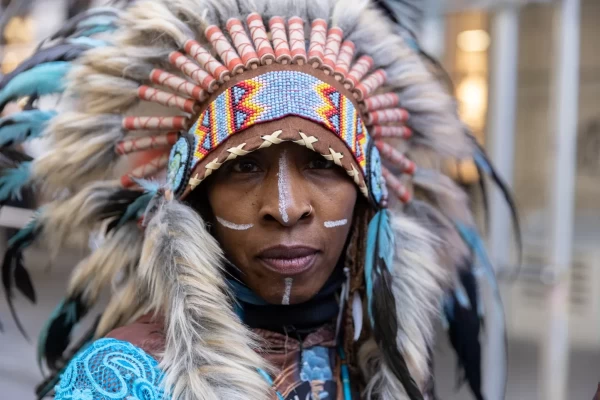This Easter, some atheists would have us believe that, like the early Christians, they are hated and persecuted by the mob. Don’t buy it.
Brendan O’Neill, spiked
I know Easter is traditionally a time when Christians give praise for the rising again of Jesus after his flagellation and crucifixion by the Romans. But this year, in the midst of your Easter egg-eating and possible Mass-attending, try to spare a thought for the modern-day equivalent of whipped, weeping Jesuses – that is, the New Atheists, the non-believers, who would have us believe that it is they who face persecution in the twenty-first century. Playing what we might call the Crucifixion Card, the atheist lobby now argues that its members suffer the slings and arrows and jibes of the heartless hordes in a similar way that Christians did 2,000 years ago.
Perhaps keen to shake off the tag of ‘Darwin’s pitbulls’, atheist campaigners now play the role of put-upon pups. They’re all about the victimology. Over the past two weeks, there have been public gatherings of atheists in which they have, self-consciously and shamelessly, plundered from the language of old oppressed groups to try to describe their alleged plight. So at the Rally for Reason in Washington DC on 24 March, a gathering of 10,000 atheists modelled on the famous black civil-rights march of 1963, campaigners used the gay-liberation term ‘coming out’ to describe what allegedly cowed atheists must now do. Like homosexuals who kicked against repression and moralism, atheists must ‘come out of the closet’, said Mark D Hatcher, founder of America’s Secular Student Alliance, even though they risk being ‘labelled pariahs’.
Others took this ostentatious oppression-mongering even further, comparing themselves to one-time repressed blacks and downtrodden women. The journalist Jamila Bey said of modern atheists’ fight for respect that ‘these are battles that homosexuals have won, people of colour have won, women have won’. ‘We can’t stay silent anymore’, she cried. Yes, atheists might not be denied the right to vote or attacked with water cannons whenever they gather in public, they might not be forced to sit at the back of the bus or to eat in Atheists Only restaurants, but they feel oppressed, okay? ‘We’re here, we’re godless, get used to it!’ cried the crowd, echoing the old rallying cry of gay liberationists.
Then, on 31 March, atheists in the US military had their first-ever get-together on a military base, under the banner ‘Rock Beyond Belief’. ‘All of us want to come out of the closet and demand equality’, said one sergeant, no doubt pissing off gay military servicemen who, not unreasonably, probably think that such phrases are best used by them rather than by their godless colleagues. Weirdly, and strangely tellingly, one of the demands of the non-Bible-bashing soldiers was for the right to use military chapels. ‘We won’t burn them down. We just want to be inside’, said one sergeant. What for? He didn’t say. But it is surely a sign of the terrible repression suffered by modern atheists that, er, they feel excluded from religious buildings.
Something about this atheist victimology doesn’t add up. Actually, a lot about it doesn’t add up, not least the fact that, although there is certainly cultural hostility towards atheists in parts of America, elsewhere, particularly in academia, publishing and throughout the political and media worlds of Western Europe, they enjoy untouchable ‘darling’ status these days, being fawned over like never before. There are no legislative restrictions on atheists’ rights or apartheid systems that separate them from the God-fearing, which means their claims to be following in the footsteps of protesting blacks are not only unfounded, but also pretty depraved. But one thing in particular about these atheist shindigs is weird: if these gatherings really are about challenging persecution, then why do they promote persecution – of Christians?
Continue reading here:
http://www.spiked-online.com/i...
The Passion of the New Atheists? (7)
Viimased kommentaarid
Kommentaarid on kirjutatud EWR lugejate poolt. Nende sisu ei pruugi ühtida EWR toimetuse seisukohtadega.
there is no hope for US to rise above with the occult
http://logosresourcepages.org/...
http://logosresourcepages.org/...
Did you know that the Lord of the Rings was strongly based in Christian morals and biblical stories? Tolkien was a strong Christian and used those ideas to create a mythology for Great Britian. Don't use examples you know nothing about...The ideas of good against evil, the common man rising above, doing the right thing are all stories from the bible AND modern literature. That's what we're supposed to learn from, so hopefully WE rise above...
Mis on atheism? Atheism ei ole religioon ega ka filosoofia. Minu arusaama järgi on see poliitiline opositsioon organiseeritud religioonile. (Enamik "võitlevaid atheiste" on tegelikult agnostikud). Seega ei saa nende poliitilisi aksioone taunida. Midagi tuleb teha; relgioosne maailm ei kahane vaatamata sajanditepikkusele võitlusele. Miks nad valitsusele apelleerivad ei ole selge? Act of desperation? Rasketel majanduslikel perioodidel religiooni osa suureneb. USA-s ei ole religioon valitsuse koostisosa. Kirik ei taha ega saa olla valitsuse alluvuses, valitsusel on enamikus teised funktsioonid ja teatud küsimustes on kirik valitsusest kõrgemal. Ei tea isegi midagi mida atheistidele soovitada. Nad on haledas olukorras. Vaatamata atheismi kui ametliku riigireligiooni staatusest mitmete põlvkondade jooksul Nõukogude bloki maades on viimase kahekümne aastaga religiooni vägi neil aladel taastunud. See fakt kõneleb millestki olulisest.
Arvamus
TRENDING
























